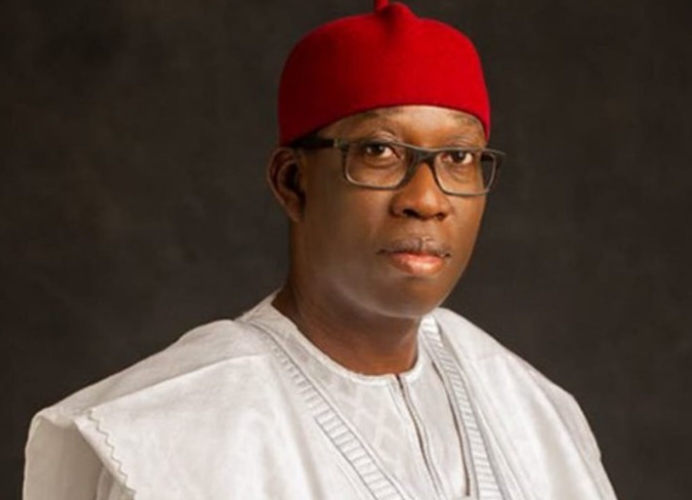The Economic and Financial Crimes Commission (EFCC) has arrested the former governor of Delta State, Ifeanyi Okowa, on allegations of misappropriating funds derived from resource allocation.
Okowa, who served as governor of Delta from 2015 to 2023, was reportedly taken into custody following extensive investigations that linked him to substantial financial mismanagement during his administration.
This development comes as part of EFCC’s ongoing efforts to clamp down on high-profile corruption cases across Nigeria.
The allegations against Okowa primarily involve the misuse of funds allocated to Delta State under the federally managed revenue allocation system.
As one of Nigeria’s oil-producing states, Delta receives a significant share of revenue from the federal government, specifically intended to support local development, infrastructure projects, and social welfare programs.
However, there have been widespread complaints and concerns about the lack of tangible development in the region.
Critics argue that despite Delta’s privileged financial position, the state still faces issues such as inadequate healthcare, poor educational facilities, and limited job opportunities, especially for the youth.
EFCC officials revealed that preliminary findings indicate a series of questionable transactions linked to projects that were either abandoned or poorly executed.
Investigations reportedly unearthed instances where funds meant for critical public services were diverted to private accounts associated with Okowa and his associates.
The agency has disclosed that Okowa may face charges that include embezzlement, abuse of office, and financial misconduct.
The former governor’s arrest has triggered a series of reactions across Nigeria. Some civil society organizations and anti-corruption advocates have commended the EFCC for taking decisive action.
According to these groups, the arrest of a high-profile figure like Okowa sends a strong message to other public officeholders that financial mismanagement will not be tolerated. Others, however, are skeptical, fearing that the case might stall due to political interference or prolonged legal battles, as has happened with previous high-profile corruption cases.
If proven guilty, Okowa’s conviction could have a lasting impact on Nigeria’s political landscape, especially as it pertains to public accountability. Analysts observe that Nigeria’s anti-corruption campaigns often face challenges due to systemic issues, including a lack of transparency, political pressures, and the slow pace of the judicial process.
Nonetheless, the EFCC’s recent efforts to prosecute former governors, ministers, and other prominent figures show a willingness to pursue corruption cases at the highest levels.The former governor’s legal team has maintained that Okowa is innocent and is being targeted unfairly.
They argue that he had no control over certain financial allocations and that any perceived lapses were likely due to administrative oversights.
His lawyers have vowed to contest the charges in court, and Okowa himself has publicly stated that he remains confident in his ability to clear his name.
As the case unfolds, the outcome may serve as a litmus test for Nigeria’s anti-corruption framework, determining whether the EFCC can effectively prosecute powerful figures and set a precedent that discourages corruption in public office.

